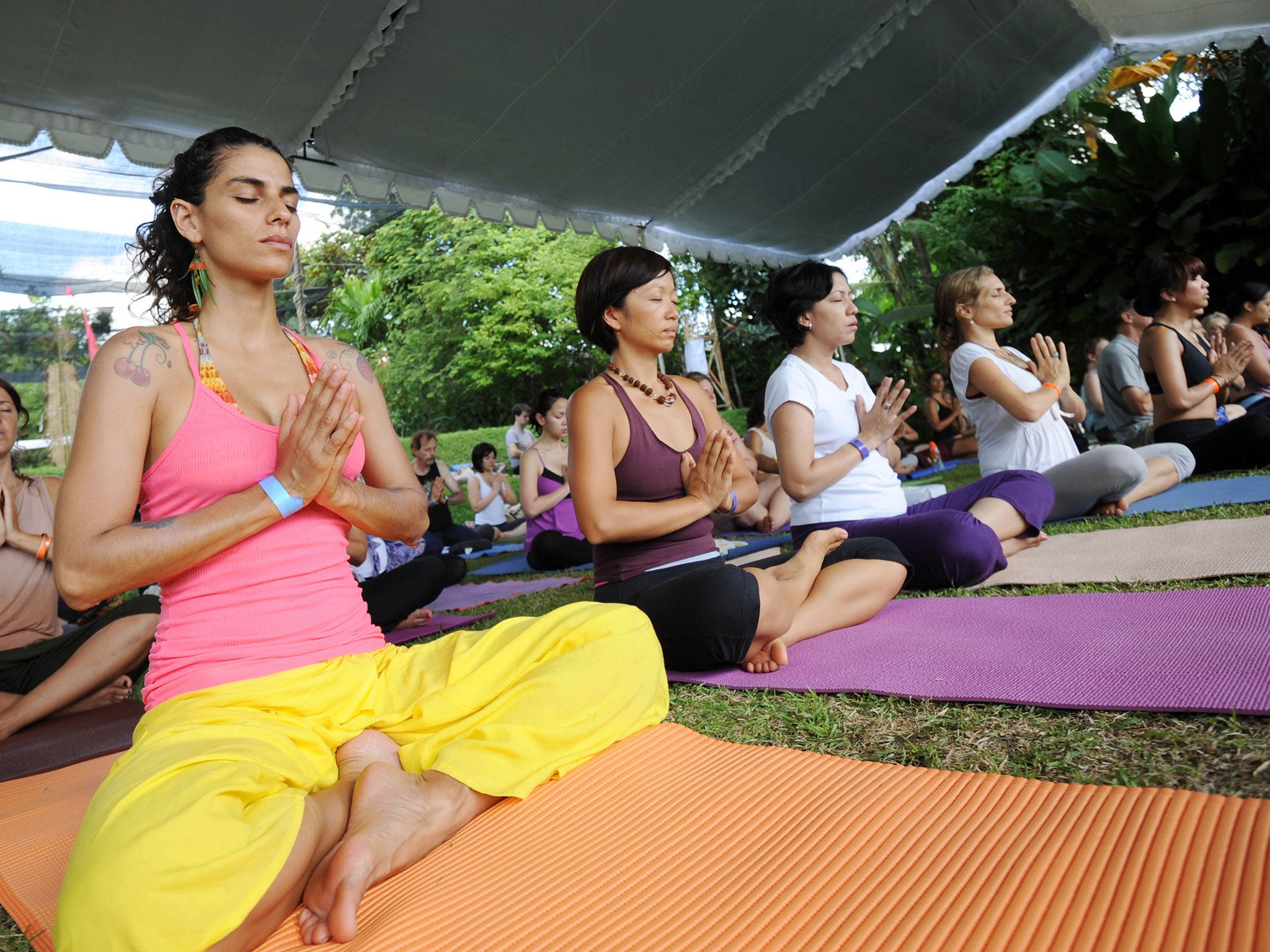The Independent's journalism is supported by our readers. When you purchase through links on our site, we may earn commission.
How to break bad habits and make good ones, according to science
"Every single bad habit can be broken"

Another year, another slew of bad habits to break and good ones to adopt: stopping from smoking to over-eating and wasting away on the couch in front of Netflix.
And with fitness becoming more popular and claims of "clean-eating" being splashed across social media, it can feel like everyone has a will of steel except for you.
Last year, 63 per cent of adults in the UK made New Year's resolutions in 2015, according to a YouGov poll, with nearly one third of participants admitting that they give up by the end of January.
It is therefore easy to be cynical about resolutions, but studies have shown that it is the perfect time to decide to make a change if goals are handled correctly.
From planning ahead to staying positive, give yourself a chance to succeed by using these scientifically proven tips.
Break up resolutions into manageable goals
If you haven't exercised in years and you pledge to run a marathon, it will take a Herculean effort for you to succeed. Instead, portion your resolution into achievable goals.
Failing to plan for New Year’s resolutions was linked to failure to achieve the goal, a study of 5,000 people at the University of Hertfordshire found.
Professor Richard Wiseman, who conducted the study, dismissed ideas often recommended by self-help experts – including adopting role models and fantasising about goals.
"If you are trying to lose weight, it's not enough to stick a picture of a model on your fridge or fantasise about being slimmer," he advises on the NHS website.
The 10 per cent of participants who succeeded did so by sticking to easy-to-follow plans.
Don’t decide your resolution at 11:59 on the 31st December
To stick to a resolution, the best time to decide upon it is in August, according to data by personal goals website StickK. This may seem unhelpful, but it’s likely the habit you’re determined to break has been niggling at your conscious for a while.
Professor Wiseman agrees, and advises people to consider what they'd like to achieve at least a few days before New Year’s Eve.
(Almost) nothing is impossible – but you may need more help than you think
Every single bad habit can be broken, Patricia A. Farrell, PhD, a clinical psychologist in Englewood, N.J. and author of How to Be your Own Therapist explains on WedbMD.
She suggests recognising your bad habit, why you’re doing it, then finding something to replace it until you are weaned off.
If you bite your nails, try chewing gum. If you crack your nails due to stress, try twiddling a pen instead.
Don’t beat yourself up about slipping up
“Perfection is unattainable,” the American Psychological Association reminds us. The website explains that set-backs are “normal and OK” and urges readers not to “give up completely because you ate a brownie” or didn’t go to the gym because you were busy.
"Everyone has ups and downs; resolve to recover from your mistakes and get back on track."
Be patient
William Pullen, agrees with Dr Farrell's that the best way to break a hab is to replace it with a "better" one. So, how do you establish that habit?
"Discipline is a muscle, its needs working out", he explains.
Citing the psychologist Jeremy Dean, he says that the usual statistic of 21 days to form a new habit only applies to certain things.
"Some things take longer. The good news is that most of the habit forming takes place in the early part of the practise so just stick with it."
Practise mindfulness
While it might not always be easy, or pleasant, tackling the anxieties which cause your bad habits in the first place is important.
Mr Pullen advises using mindfulness to get out of your anxious mind.
"Instead [get] into the moment in front of you, the air, your breath, the trees. Combine this with a gentle acknowledgement of the urge to act out your old habit - notice it and let it go - and soon you are on your way."
"It's about being gentle with yourself - remember what [pioneering Swiss psychiatrist Carl] Jung said - what you resist persists!"
Make a plan
Creating a plan can be key to quitting a bad habit. A US government Centre for Disease Control article on how to quit smoking - which can be applied to other habits - suggests picking a date to quit; alerting those around you so they can offer support; and listing your reasons to quit.
It also advises identifying triggers, particularly in the early days of your attempt, in order to avoid them, and having a person to turn to when you feel you might give up.
Join our commenting forum
Join thought-provoking conversations, follow other Independent readers and see their replies
Comments
Bookmark popover
Removed from bookmarks